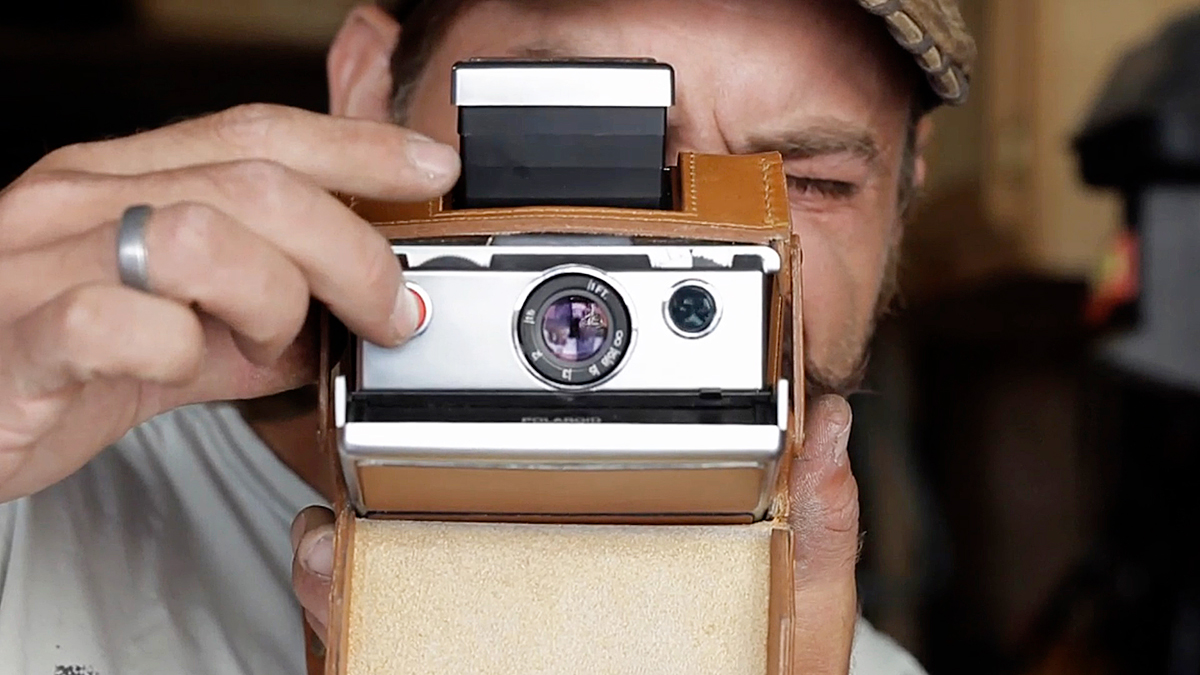By Chlotrudis Independent Film Society
Rating: 3 cats
Director: Grant Hamilton

Country: austria, france, germany, netherlands, united_states
Year: 2012
Running time: 93
IMDB: http://www.imdb.com/title/tt2120160/
Jason says: “Instant photography is pretty darn cool, both as concept and technology, and most of the core audience for TIME ZERO: THE LAST YEAR OF POLAROID FILM probably already feels that rather strongly. The rest of the people who might watch it also aren’t likely to need a whole lot of convincing. It’s a bit less than ideal, then, that director Grant Hamilton spends so much of the film on saying so, because there is much more interesting material to come.
“As many of the photographers and enthusiasts interviewed for the film lament, younger people might not recognize that Polaroid was until recently not just a generic electronics & imaging brand, but one synonymous with self-developing film and the collapsible cameras that took those pictures. In February of 2008, they quietly let it be known that they would be ending production of their signature product, leading to initial despair and then an audacious plan to purchase a Polaroid facility in the Netherlands and produce new instant film within a year – a plan so unlikely that it was called ‘The Impossible Project.’
The Impossible Project changed the nature of TIME ZERO; what started as a eulogy suddenly had the potential for an actual story with a triumphant conclusion of sorts. Without that, it seems likely that the length of a short would have been better-suited to this topic than that of a feature; the opening half hour that focuses on the upcoming end of an era already contains a fair amount of repetition and filler – as peculiar as the guy described as Polaroid inventor/founder Edwin Land’s bodyguard is, including him really brings nothing to the movie.
“As for the content of the movie, I strongly suspect that the reaction will vary even more than usual by the viewer’s disposition and tastes. It’s a very emotionally-based documentary, vague in its details, with the first half hitting the same nostalgia buttons enough to trigger contrarian impulses, while the second half talks in general terms about how difficult recreating instant film would be, but could stand to get into more specifics. Maybe the number of people who want a chemistry lesson is relatively limited, but “some chemicals may need to be specially mined” doesn’t have the same impact of giving names and relative costs as examples.
“Many of the interviewees deride digital photography, which is kind of ironic considering that (aside from an 8mm segment at the start) this picture was shot digitally and looks pretty good. Hamilton goes for bright colors wherever he can find them, and either he’s a photography enthusiast himself or the great number that he interviewed of followed for the film rubbed off on him – there’s not many shots in the movie that don’t either look very well-composed or capture something memorable.
“Which, I’ve got to admit, is a really Polaroid way to build a movie. He gets some nice snapshots, but a little more detail and
a bit less blind sentiment might make it more interesting to non-enthusiasts. 3.25 cats
“Seen 28 April 2012 in Somerville Theatre #1 (Independent Film Festival Boston 2012, digital)”
Chris says: “As you can discern from the title, this is a documentary fueled by nostalgia—for good and for ill. TIME ZERO begins promisingly: alongside a brief but informative history of the product and its enigmatic creator, Edwin Land, we meet a few but fervently dedicated photographers for whom Polaroid is their canvas of choice. They all make a convincing case for its usage (two of them even have entire walls of Polaroids on display in their homes), lovingly fetishizing the otherness of its neatly compact cameras and the charge one gets from a small snapshot developing right before your eyes.
“Naturally, all are dismayed (to varying degrees) when Polaroid ceases production of instant film in 2008. At this point, unfortunately, the film shifts from affably golden-hued wistfulness towards sentimental wallowing. Rather than spending time fully considering the pros and cons of digital film (the dominant format most responsible for instant film’s decrease in popularity), with the exception of a sound bite or two, TIME ZERO focuses more on what is lost, and it nearly lost me with a lengthy, rambling scene centered on a Polaroid devotee in tears over the product’s demise.
“The final third shifts focus again to a collective headed by an entrepreneurial Austrian that attempts to recreate instant film, a challenge since many of the materials Polaroid originally used to make it are no longer available. This process should feel inspiring and uplifting. Instead, it drags and seems laborious, which runs counter to everything Polaroid and instant film represents. At the very least, TIME ZERO stirred a newfound desire within me to obtain a Polaroid camera, but it really could’ve worked better as a half hour short. 2.75 cats
“(This film screened at the 2012 Independent Film Festival of Boston)
